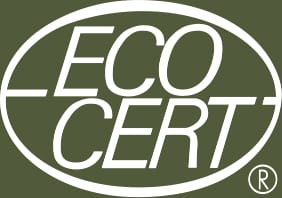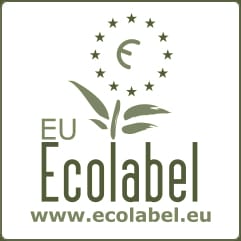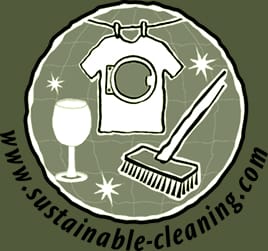
SEE OUR WASHING TIPS
WASHING, WASHING DETERGENT, SPINNING
find out more

THE DIFFERENT TYPES OF WASHING
WASHING ON A
LOW TEMPERATURE
LOW TEMPERATURE
This must not be more than 30°C.
DELICATE WASH
This must not be more than 40°C. Spinning at 1000 revolutions maximum per minute is recommended.
HOT WASH
This is a wash that will remove bacteria, micro-organism or bad odours. It is done at 60°C.

THE DIFFERENT CYCLES
THE SHORT CYCLE
OR “FAST CYCLE”
OR “FAST CYCLE”
This is a cycle that can last between 30 minutes to 1hr30.
THE LONG CYCLE
A “long cycle” is a cycle that last for more than 3hrs.

WHY WASH ON “ECO MODE”?
“Eco” mode is much more environmentally-friendly than the other programmes, because it needs less electric power. Most of the electricity a washing machine uses is to heat the water. The temperature rises gradually, which is why the “eco” cycles are usually longer, but use less energy.
WHICH LAUNDRY DETERGENT SHOULD YOU USE?
Several factors are taken into account when choosing a laundry detergent to use:
THE TYPE OF FABRIC TO WASH
Delicate fabrics like wool or silk need a special washing detergent designed to preserve their texture and colour. You can add a fabric softener to protect the fabric; this enables rubbing between garments to be reduced and for them to hold their shape. For very dirty clothes (like sports clothes) you can choose a washing detergent with antibacterial agents.
SENSITIVITY
[SKIN OR ALLERGY]
[SKIN OR ALLERGY]
If you have allergies or sensitive skin, choose a hypoallergenic washing detergent or one specially formulated for sensitive skin. If you have stubborn stains, look for a washing detergent with more powerful stain removal properties.
SOFTNESS
Some washing detergents have ingredients that soften the fabric.
ODOUR
You can choose according to what you like in terms of fragrances.

You can also choose a more environmentally-friendly washing detergent to limit the environmental impact of washing.
Eco-friendly washing detergents or organic washing detergents can be bought in supermarkets or specialist stores which have ingredients that are gentler and biodegradable. There are various eco-friendly certified washing detergents, you’ll find them with these different labels on them.
Sources: ADEME - Agence de l'Environnement et de la Maîtrise de l'Énergie
Sources: ADEME - Agence de l'Environnement et de la Maîtrise de l'Énergie

ECOCERT
The label aims to guarantee that the washing detergent has been made respecting the environment (dangerous substances forbidden and biodegradability, packaging prevention…). The ECOCERT label Eco-detergents with organic ingredients has 2 levels of certification:
- • The Ecodetergents certification guarantees 95% natural origin ingredients;
- • The Eco-detergents with organic ingredients guarantees a minimum of natural origin ingredients (> 95%) from organic farming (> 10%).

EUROPEAN ECOLABEL
The European Ecolabel aims to guarantee a reduction in environmental impacts throughout the life cycle (low temperature effectiveness, biodegradability, the right dosage, preventing excess packaging, etc.).

NATURE & PROGRES
The label aims to guarantee that the washing detergent has been manufactured respecting the environment (biodegradability of ingredients, packaging prevention, choice of procedures, etc.). The label guarantees that synthetic ingredients are forbidden and that ingredients from farming are certified Nature et Progrés or organic.

SUSTAINABLE CLEANING
The label aims to guarantee that the washing detergent has been made respecting the environment around 3 main components:
- • Environmental safety: checking that the ingredients cannot have a harmful effect on the environment
- • Material effectiveness: excess packaging prevention and packaging recyclability
- • Consumer information: in particular regarding the dosage and usage of water and energy.
You can also make your own natural washing detergent, many tutorials and recipes are available on the internet and social media.
WHICH SPIN SHOULD I CHOOSE FOR MY WASHING?
It is preferable to look at the item’s label to respect the care instructions.
FOR DELICATE FABRICS
[SILK, WOOL OR LACE]
[SILK, WOOL OR LACE]
Choose a gentle spin between 400 and 800 revolutions a minute. It is advised that you also use this spin setting for bulky washing like duvets, curtains, a bed cover, etc. A gentle spin reduces the risk of creasing.
FOR “CLASSIC” FABRICS
[COTTON, LINEN OR OTHER MATERIAL THAT ARE ALSO RESISTANT]
[COTTON, LINEN OR OTHER MATERIAL THAT ARE ALSO RESISTANT]
This must not be more than 40°C. Spinning at 1000 revolutions maximum per minute is recommended.
FOR BULKY WASHING
Programme the spin between 1200 and 1400 revolutions a minute.

RECOMMENDATION
Choose a washing bag from GUPPYFRIEND®
>
>Preserve the planet and protect your clothes by using a GUPPYFRIEND®washing bag when doing a machine wash.
>
>Preserve the planet and protect your clothes by using a GUPPYFRIEND®washing bag when doing a machine wash.
Synthetic clothes release microplastic particles into nature when washed. These particles then end up in rivers and oceans, causing damage to the environment and our health. However, using the GUPPYFRIEND® washing bag means this problem can be prevented efficiently: the bag reduces the amount of fibres dispersed during washing, and as such protects your clothes and reliably filters microplastic particles before they pollute water. It’s a solution that's good for you, your clothes and the environment.
GET A WASHING BAG >
